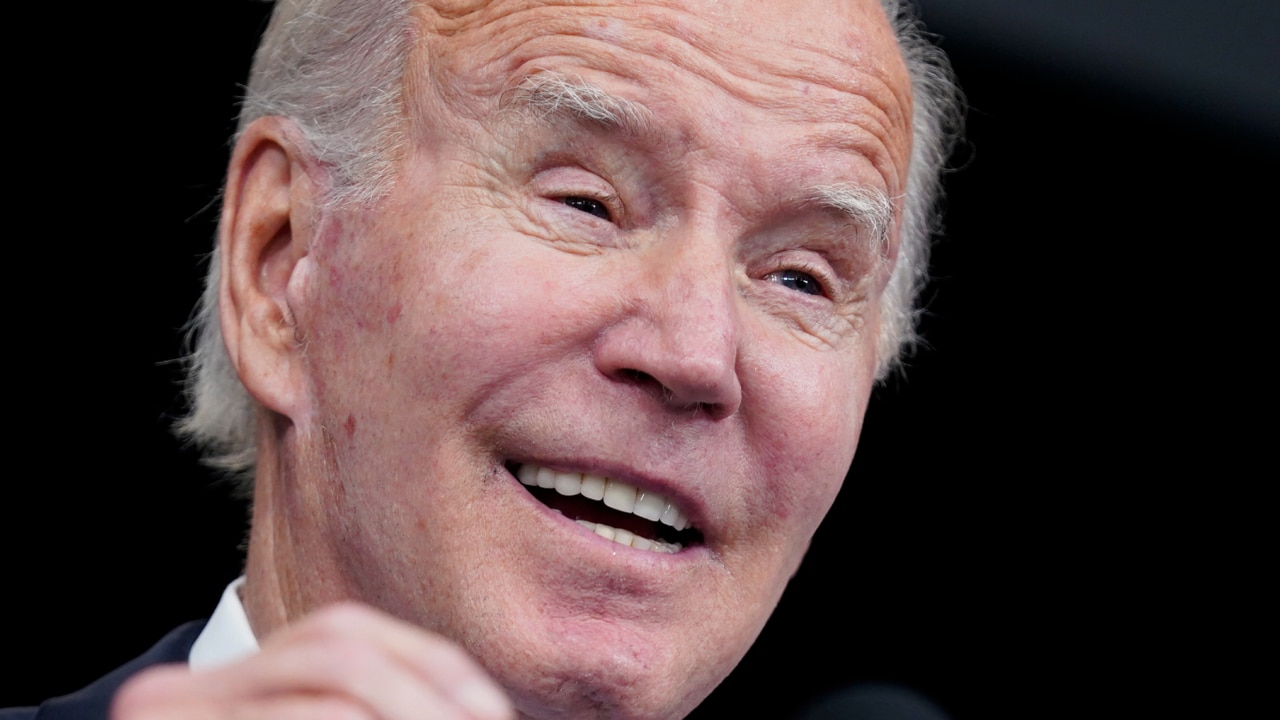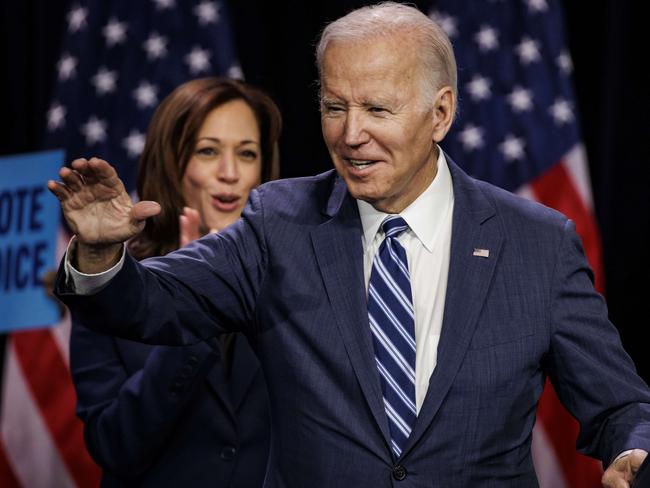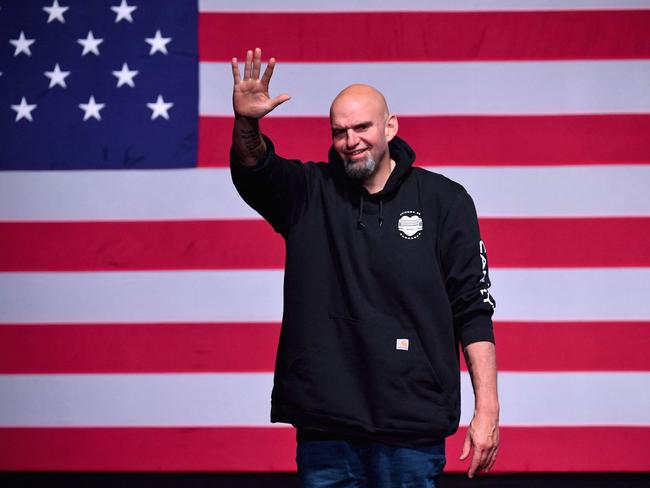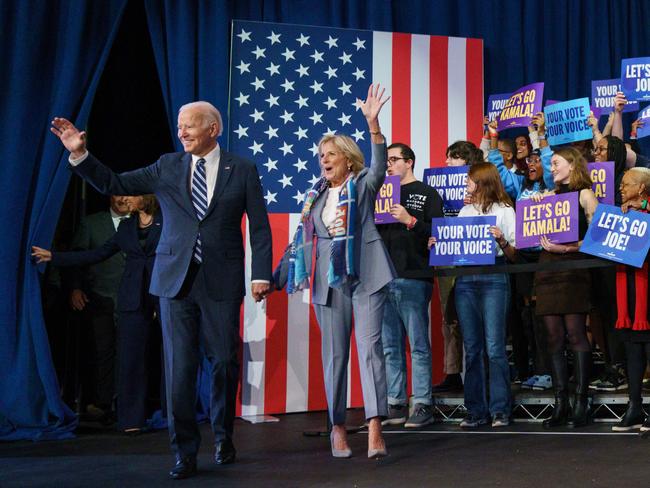Tim Blair: Why I was wrong about the US Midterms red wave
The right who anticipated a Midterms red wave failed to consider two things: the Democrat party machine’s efficiency in securing early votes and the unbreakable loyalty of Democrat supporters, writes Tim Blair.

Opinion
Don't miss out on the headlines from Opinion. Followed categories will be added to My News.
First things first. I might have gotten last week’s prediction about a Republican “red wave” swamping Joe Biden’s Democrats in the midterm elections just a teensy bit wrong.
As in almost completely wrong.
A red wave certainly happened in Florida, where potential future presidential candidate Ron DeSantis swept even traditional Democrat areas to win by almost 20 points.
And large parts of New York, of all places, turned Republican following years of rising crime under various Democrat representatives.
Additionally, Republicans are currently ahead in the popular vote by 52 per cent to 46.5 per cent, which is why leftists aren’t mentioning the popular vote.

It’s only an issue when the likes of Democrats Al Gore and Hillary Clinton carry the vote but lose their elections.
In terms of results, however, the wave was at best a ripple.
Democrats across the US largely hung on or made gains despite inflation, energy issues, cultural chaos and the Biden administration’s demonstrated incompetence.
Plainly, we on the right who anticipated a red wave failed to consider two things: the awesome efficiency of the Democrat party machine in securing substantial early votes and the unbreakable tribal loyalty of Democrat supporters.
As Townhall.com columnist Kurt Schlichter summarised, voters on the right and left measure their candidates in entirely different ways.
Conservatives seek someone who will do a decent job. By comparison, Democrats “vote to signal. Job performance is irrelevant”.

PJ Media’s Kevin Downey was even more scathing. “Democrats wouldn’t consider not voting for their candidate even if he looks like the guy from Sling Blade and can’t put a sentence together,” he wrote.
“Bolshies don’t care that they are paying $4 for gas in Michigan. They don’t care that poor black people are getting slaughtered amid a three-year crime surge. They aren’t concerned that inflation is gutting the nation; it’s all about the party, comrade.”
It sure seems so because little else could explain the election of John Fetterman as a Pennsylvania senator.
Fetterman suffered a stroke back in May that left him with significant mental difficulties. He struggles to speak clearly, often delivering random word sequences ending with the assertion “true”.
In one pre-poll speech he said he celebrated “the demise of Roe v. Wade” – which is the opposite of Fetterman’s pro-abortion position. In the only debate with his Republican candidate, Fetterman opened with: “Hi. Goodnight everybody.”
In 2018, Fetterman declared: “I don’t support fracking at all.”
Asked during that debate for his current stance, Fetterman offered: “I do support fracking, and I don’t, I don’t – I support fracking, and I stand, and I do support fracking.”
Democrat Fetterman won his election by nearly 250,000 votes. It’s all about the party.
But he isn’t even the best example of Democrat devotion.
Fetterman is an absolute wizard wordsmith compared to another Pennsylvania Democrat, Tony DeLuca.

While Fetterman has his coherence issues, DeLuca literally cannot speak at all. Or do much else. DeLuca, you see, is dead. His funeral was held on October 13.
But his name remained on the ballot, along with his Democrat party affiliation. DeLuca’s corpse was re-elected with 85 per cent of the vote.
DeLuca will govern from the afterlife until a special election is called to replace him with someone living – although a statement from the Pennsylvania House Democratic campaign committee seemed to support his retention.
“While we’re incredibly saddened by the loss of Representative Tony DeLuca,” the statement announced, “we are proud to see the voters continue to show their confidence in him and his commitment to Democratic values.”
Another Democrat-backed candidate, Simon Silva, is narrowly leading in his bid to become City Attorney of California’s Chula Vista despite not having a pulse. Silva died in September.
Barbara Cooper’s demise was not exactly a shock. The Tennessee state representative had made it to 93 before her sad passing in October.
More surprising is that Democrat Cooper remains a state representative. She was re-elected.
It’s long been said in jest that Democrats harvest the votes of the dead. Now the living are voting for coffin occupants. It’s quite a switch.
And it could influence future elections. With death and incapacity no longer considered election impediments, Joe Biden is suddenly sounding much more upbeat.

Asked last week about the two-thirds of voters who say they’d prefer Biden not to run in 2024, he smilingly replied: “Watch me.”
His confidence is justified. Biden, after all, won 81 million votes in 2020 following a minimal campaign overshadowed by concerns about his state of mind and likely longevity.
Assuming his decline continues, Biden could increase his margin at the next poll. Democrats evidently adore the dead and diminished.
This’ll make it tough for a healthy, decades-younger rival such as DeSantis, whose vigour and liveliness could be seen as liabilities.
Republicans may have to widen their search for Biden’s 2024 opponent.
There’s an obvious choice. Abraham Lincoln’s second term as President was cruelly cut short in 1865. He deserves another chance.





